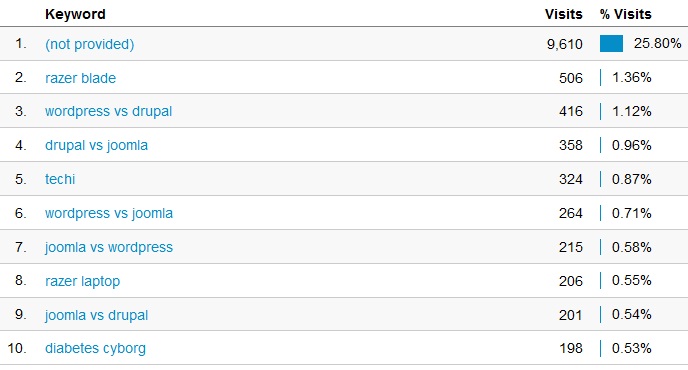A few months back, website owners got extremely upset because Google Analytics stopped telling companies many of the keywords that people used to get to their website; specifically, they started marking all keywords used by people logged into Google accounts to be marked as (not provided), which is certainly frustrating. Officially they swear this is for security, but what possible security breach is it for clients to see how people got to their webpages without any identifying information? Users cried foul but, of course, Google did nothing to respond.
Now, it’s been announced that Firefox is going to make all Google searches show up as (not provided) by default. In other words, you’re going to get a lot more of those incredibly annoying (not provided) results in Google Analytics.
The reason why Google would do this is pretty easy to understand: they want people to rely only on their paid search, so they’re trying to make SEO as difficult as possible. And, what would be tougher than not even knowing if your SEO efforts are working?
Thankfully, you have a few workarounds at your disposal. Google Analytics will still show the landing page, from which you can usually discern what keyword they were going for (to take full advantage, try to have each page be optimized for only one keyword). In addition, you can still see the same sort of data on Google Webmaster Tools, although, if Google Analytics is any indication, this is going to leave soon.
Google is certainly doing whatever it can to make running a website without giving them money difficult and one day, they may even make it impossible. However, until that day comes, we at least have some tricks left up our sleeves.




